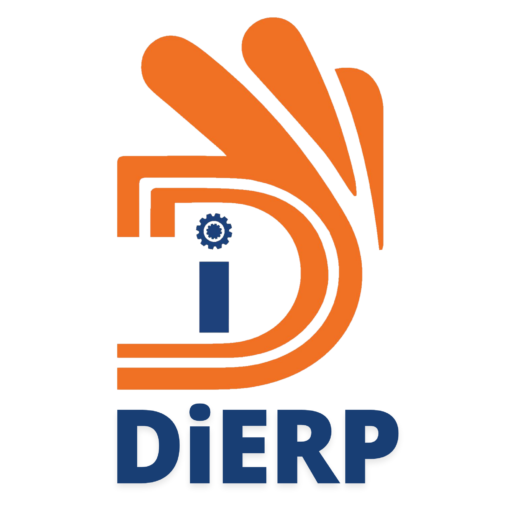Today, small and medium-sized businesses (SMEs) also face some of the problems that large enterprises do. One of them being planning and managing their resources. SMEs face similar complexities but have limited resources to deal with them.
Small businesses (like their bigger counterparts) have to:
- Do accounts to track their sales/purchases.
- Do their taxes.
- Pay their employees.
- Manage deliveries within promised timelines.
- Deliver quality goods and services.
- Communicate with customers, answer their queries.
Large enterprises invest millions of dollars in highly sophisticated systems like SAP. SAP and similar systems are able to handle requirements from these large enterprises to bring their multi-country, multi-company, multi-currency, global businesses into a single platform. This has helped them achieve consolidation of data/records in the fundamental processes such as accounting, taxation, payroll, reporting, and supply chain to name a few.
In contrast to large enterprises, SMEs have been left out of the 1st wave of the digital revolution (1995-2015). The main reason for being left out is because they don’t have the financial resources to license, hire programmers and customize such software to match their needs. Systems like SAP have been a no-go for most SMEs. Such systems need a minimum CAPEX or OPEX layout of $100k (Yes, One Hundred Thousand Dollars) and upwards. Even with cloud offerings (Software as a Service, SAAS) from such vendors, there is no easy Do It Yourself (DIY) for people to feel confident about.
So even today, small businesses continue to struggle to keep things organized. They often use a mix of applications and tools such as spreadsheets, accounting software, and web-based CRMs to manage their day-to-day record keeping. As a consequence, they have to access different systems to understand customers’ master data, sales, cash flows, or profitability. The information exists in different silos. It becomes hard to combine the data in order to get useful insights or alerts. This leads to SMEs being reactive instead of being proactive in their day-to-day operations. With such a constrained way of working, there’s limited scope for growth.
DiERP addresses some fundamental problems SMEs struggle with when managing their resources:
- Affordability: It is free and open-source software that is freely available to download and install.
- Completeness: All necessary modules are available. View the full list.
- Customization: It is easy to add fields, or add more features.
- Efficiency: Computing requirements are relatively low (cheaper to host and manage).
- Wholesomeness: A single system and database that allows multiple users to record transactions or extract data simultaneously.
What is DiERP?
DiERP is a complete business management solution that helps SMEs to record all their business transactions in a single system. With ERPNext, SMEs can make informed, fact-based, timely decisions to remain ahead in the competition. It serves as the backbone of a business adding strength, transparency, and control to your growing enterprise.
DiERP will help you to:
- Keep track of the organization’s financial indicators.
- Track all invoices and payments.
- Know what quantity of which product is available in stock.
- Identify and track your key performance indicators (KPIs).
- Identify open customer queries.
- Manage employee payroll.
- Assign tasks and follow up on them.
- Maintain a database of all your customers, suppliers, and contacts.
- Prepare quotations.
- Track your budgets and spending.
- Determine effective selling price based on the actual raw material, machinery and effort cost.
- Get reminders on maintenance schedules.
- Publish your website.
Is DiERP only for SMEs?
ERPNext is a powerful and versatile ERP system that is well-suited for SMBs and large enterprises and is equally competitive as any of the market leaders of the ERP world. It is highly scalable, flexible, secure, lightning-fast, high-performance, cost-effective, and compliant. It also offers a wide range of features and benefits that can help large enterprises improve their operations and achieve their goals.
Here are brief highlights of how DiERP can benefit large enterprises:
- DiERP can help large enterprises to improve their financial performance. DiERP provides real-time insights into financial data, which can be used to make better decisions about budgeting, forecasting, and investing.
- DiERP can help large enterprises to streamline their operations. DiERP can automate tasks and processes, which can free up employees to focus on more strategic work.
- DiERP can help large enterprises to automate their supply chain. DiERP can improve efficiency and reduce costs by automating the flow of information on goods and materials.
- DiERP can help large enterprises to make better decisions. DiERP provides real-time data and insights, which can be used to identify trends, make predictions, and optimize operations.
If you are a large enterprise looking for an ERP system that can help you improve your operations and achieve your goals, DiERP is a good option to consider. Here are some of the strengths of DiERP that make it a good solution for large enterprises:
- Scalability: DiERP is a cloud-based ERP system, which means that it can scale to meet the needs of even the largest enterprises. It can be easily deployed and managed on a large number of users and devices.
- Flexibility: DiERP is a highly flexible ERP system that can be customized to meet the specific needs of any business. It has a wide range of modules that can be used to manage different aspects of a business, such as accounting, manufacturing, sales, and HR.
- Security: DiERP is a secure ERP system that uses industry-standard security features to protect data. It has a robust authentication system that prevents unauthorized access to data.
- Performance: DiERP is a high-performance ERP system that can handle large volumes of data and transactions. It is designed to be efficient and reliable, even under heavy load.
- Support: DiERP has a strong community of users and developers who provide support. There are also a number of third-party partners who offer professional services for DiERP.Check out a variety of User Stories to know more.




